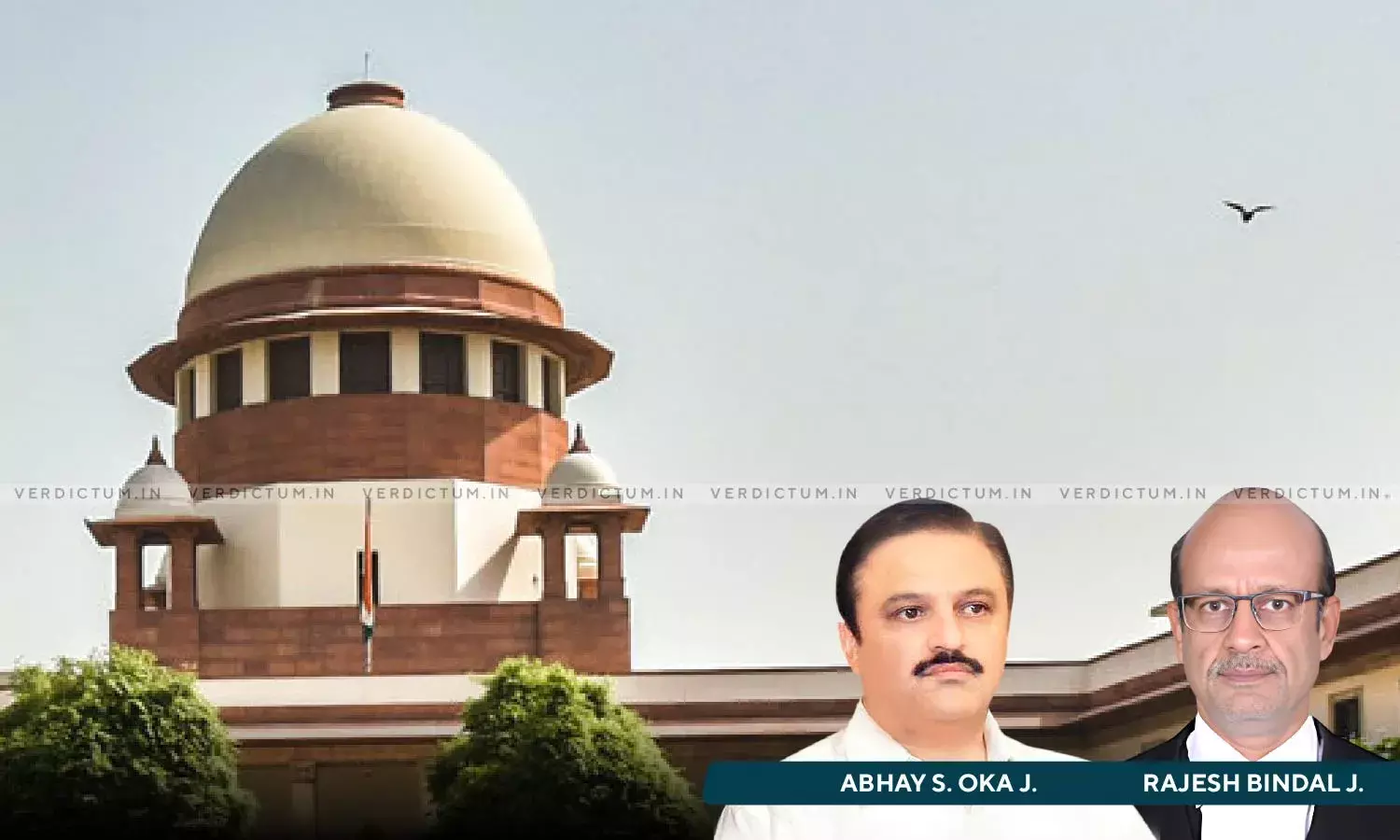Drawing Samples Of Drugs In Non-Compliance With Section 52A Of NDPS Act Fatal To Case Of Prosecution: SC Sets Aside Conviction

The Supreme Court recently in a Criminal Appeal challenging the conviction of the Petitioner under the Narcotics Drugs and Psychotropic Substances Act, 1985 (NDPS Act) reiterated that the act of an officer empowered under Section 42 of NDPS Act for drawing samples of the material at the time of seizure, if is not in conformity with the law laid down by this Court in the case of Union of India v. Mohanlal & Anr (2016) 3 SCC 379, will create a serious doubt about the prosecution's case.
The Bench of Justice Abhay S. Oka and Justice Rajesh Bindal noted that in the present matter as per the evidence of the Police Officer (PW-7), the samples from the drugs were drawn immediately after the seizure and this being the situation "the act of PW-7 of drawing samples from all the packets at the time seizure is not in conformity with the law laid down by this Court in the case of Mohanlal".
The Court stated that "This creates a serious doubt about the prosecution's case that the substance recovered was contraband." Accordingly, the Bench observed that "the case of the prosecution is not free from suspicion and the same has not been established beyond a reasonable doubt. Accordingly, we set aside the impugned judgments insofar as the present appellant is concerned and quash his conviction and sentence."
As per the case of the Prosecution, during patrolling the Petitioner was caught driving a tempo which led to the recovery of eight bags of poppy husk which were concealed under a tarpaulin and each bag was found to be 29.5 kgs. The Special Judge convicted the Petitioner under Section 15 of the NDPS Act and sentenced him to undergo 10 years R.I. and a fine of Rs. 1,00,000. The appeal preferred was dismissed by the impugned judgment of the High Court.
Appearing for the Petitioner Advocate Puneet Jain along with Advocate Harshit Khanduja submitted in the Criminal Appeal that the present case relates to the complete noncompliance of statutory safeguards contained in the NDPS Act (Section 41, 42, 52,57) which has not only prejudiced the case of the petitioner but has resulted in the trial being vitiated.
The Appeal read that total noncompliance with Section 52A is impermissible and a clear violation of the procedural safeguard which vitiates the trial and that, "an officer under Section 42 of the Act has been entrusted with specific tasks of - "entry, search, seizure and arrest". This officer under Section 42 has no power to "investigate", as that power has been conferred upon Section 53 officer. As per Section 52(3) of the Act, the Section 42 officer is required to handover the seized goods and the persons arrested to the officer in charge of a police station or Section 53 officer and all subsequent acts have to be done by the officer empowered under Section 53."
The Plea stated that from the Scheme of the Act itself, the Section 42 officer is required to hand over the seized articles and arrested persons for further action and investigation to the investigating officer empowered under Section 53. This has been expressly said so as to avoid the merging of the identity of a complainant and the investigator, as is required to ensure a fair trial in light of Article 21 of the Constitution.
It was further submitted that, in the facts of the present case, the Seizing Officer- PW 7 Hardeep Singh himself drew the samples at the time of recovery in contravention of the scheme of the Act and that PW-7 was not empowered to draw representative samples and ought to have forwarded the seized articles to the officer in charge of the police station or to the officer empowered under Section 53, who thereafter has to make an application to the Magistrate U/s 52A (3) who shall draw representative samples and certify the correctness of the samples so drawn U/s 52A(2)(c) of the NDPS Act.
Agreeing with the view and the judgments relied upon by the Petitioners, the Apex Court reiterated that as per the Judgment of Mohanlal's case, it was held that it is manifest from Section 52-A(2) that upon seizure of the contraband, the same has to be forwarded either to the officer-in-charge of the nearest police station or to the officer empowered. The Court also reiterated that as per Section 53, there is no provision in the Act that mandates the taking of samples at the time of seizure.
"Hence, the case of the prosecution is not free from suspicion and the same has not been established beyond a reasonable doubt. Accordingly, we set aside the impugned judgments insofar as the present appellant is concerned and quash his conviction and sentence," the Bench held.
Observing the same, the Court allowed the Appeal.
Cause Title: Simranjit Singh v. State of Punjab [CRIMINAL APPEAL NO.1443 OF 2023]

